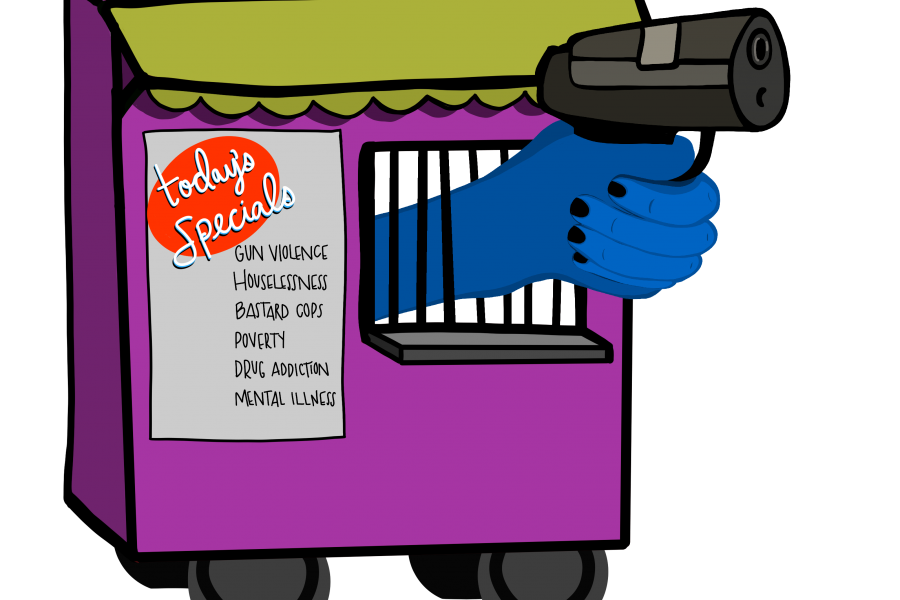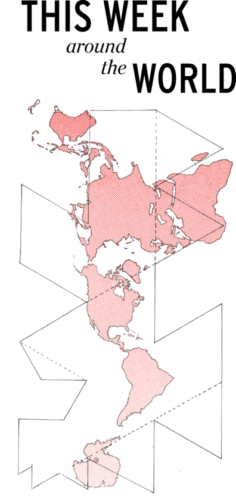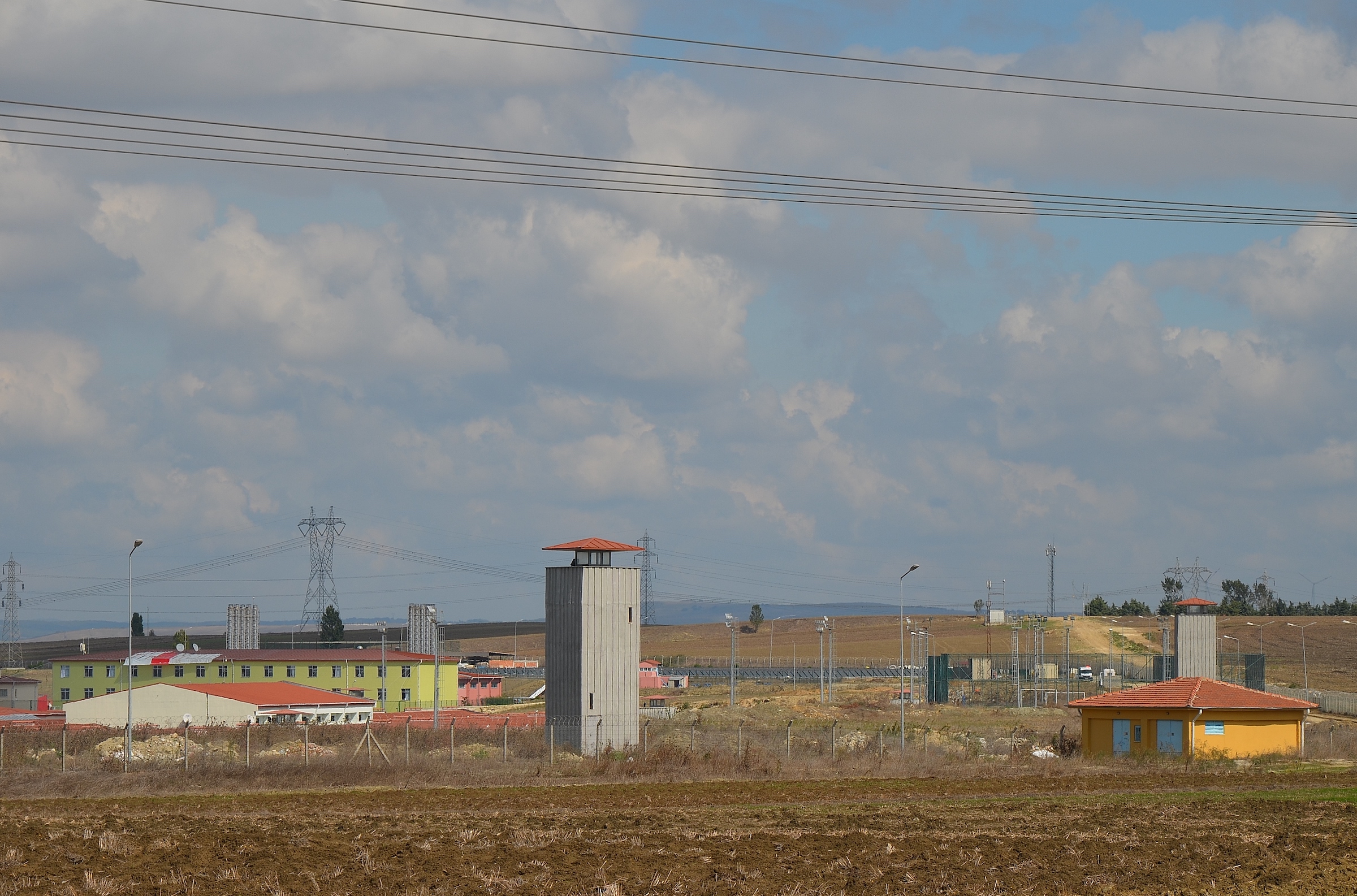Various iterations of white nationalism—the belief that white people are a singular race that this race is superior to all others, and that they must develop and maintain a white, racial-national identity and ethnostate—have been promulgating and metastasizing both online and in the halls of power for a long time now. From the founding of the American colonies, this nation’s existence has explicitly depended upon the theft of lands through the settler-colonial genocide of Indigenous peoples from sea to shining sea and the expropriation of the forced labor of enslaved Africans.
When the scourge of slavery was finally abolished in 1865, the system shifted to relying upon the exploitation of marginalized groups by denying them complete access to the protections of full citizenship while continuing to expand the riches and power of the wealthy.
Many brilliant thinkers have deeply analyzed these historical factors and their direct connection to present conditions—the 1619 Project, Roxanne Dunbar-Ortiz’s An Indigenous Peoples’ History of the United States and Michelle Alexander’s The New Jim Crow are a few that you should absolutely read.
A wider cultural understanding emerging from the devastating impacts of these intersecting systems of oppression and domination is encouraging.
However, it is appalling that it has taken so long for the many voices of the marginalized to reach this critical mass, and in many ways, it has been in reaction to ascendancing white nationalism as it animates the base of the right-wing in the United States.
Our culture tends to take very binary or dichotomous perspectives—things are good or evil, black or white, male or female, heterosexual or homosexual—and in doing so, we miss the complexities and nuances so crucial to understanding and evolving beyond our present maladies. This deficit has been especially pronounced when considering antisemitism.
Recently, The View host Whoopie Goldberg said that “the Holocaust isn’t about race. It’s not. It’s about man’s inhumanity to man, that’s what it’s about. These are two groups of white people.”
There was a swift backlash that has led to Goldberg being suspended from the show for two weeks, issuing of an apology that seemed to reinforce her original point of the Jewish people not being a race and calls for her to be fired.
Her statements in the discussion were predicated upon the recent decision by a Tennessee school board to ban the Pulitzer Prize-winning graphic novel Maus, which recounts the experiences of Holocaust survivors.
This move is part of a wider strategy challenging the teaching of what has been termed Critical Race Theory (CRT) by right-wing officials across the U.S. The NAACP Legal Defense Fund defines CRT as “an academic and legal framework that denotes that systemic racism is part of American society—from education and housing to employment and healthcare. Critical Race Theory recognizes that racism is more than the result of individual bias and prejudice. It is embedded in laws, policies and institutions that uphold and reproduce racial inequalities.”
There is incontestable evidence of the prevalence of systemic racism, as previously mentioned in this article. Where this conversation gets mired in complexity is in the nature of Goldberg’s statement.
She is a Black woman who has posited that race is about the color of one’s skin. This understanding of race is absolutely a component of systemic racism, however, it is not the whole picture. She misses the crucial component that race was constructed differently in Nazi Germany—Jewish and Roma people were racialized as inferior. Further, her remarks erased the fact that there are BIPOC (Black, Indigenous, people of color) who are Jews.
For centuries, the Jewish people have been cast as an evil force within European society from the accusations of blood libel—that they sacrificed Christian children—through to the Spanish Inquisition and their subsequent expulsion from many medieval European nations.
In 1903, the Russian Czarist police published a now-infamous fabricated document called The Protocols of the Learned Elders of Zion, purporting to be the meeting minutes of a Jewish cabal attempting to seize control of the entire world.
The aftermath of damage due to this document has been absolutely inconceivable. Adolf Hitler’s Nazi Party seized upon it as proof of the threat posed by the Jewish people to the German nation.
The Holocaust (also called the Shoah)—the genocidal slaughter of over six million Jewish people—would not have been possible without the systematic denigration and brutalization of Jewish people made possible through antisemitism. The myth of Jewish power was crucial to these atrocities. In it lies another nuanced contradiction, as they were seen as racially inferior while also wielding some sort of Protocols-style power to orchestrate global corruption and domination.
It is also important to mention that Holocaust denial has been the contemporary vanguard of antisemitism in both Europe and the U.S. ever since.
Prior to the rise of the Nazis in the U.S., Nazi-sympathizer, friend to Hitler and Mussolini and business magnate Henry Ford published half a million copies of The Protocols renamed as The International Jew. As recently as 2004, Walmart had refused to stop selling copies of it. The dehumanizing, racist characterizations of the Jewish people within that document have gone on to influence many of the conspiracy theories in the U.S. past and present.
The contemporary iteration of these toxic ideologies is espoused by Q Anon, who according to the American Jewish Committee, believe that “the world is controlled by a satanic cabal of pedophiles and cannibals, made up of politicians (mostly Democrats), mainstream media, journalists, and Hollywood entertainers. This cabal is accused of controlling a ‘deepstate’ government whose purpose is to undermine and attack [former] President Donald Trump and his supporters.”
Q Anon hold wealthy Jewish people like George Soros and the success of some Jewish people in Hollywood as proof positive of their conspiracies, further adding the antisemitic links between their theories. They also directly plagiarize their ideas about pedophilia rings almost verbatim from the blood libel accusations leveled against Jewish people in the Middle Ages—and ever since.
There is an assumption among many in the U.S., including on the left, that Jewish people have assimilated into the constructed racial category of whiteness. They are assumed to benefit from white privilege—the societal privilege that gives social, political and/or economic benefits to white-skinned people while denying them to others—in spite of the fact that not all Jewish people even have white skin.
There are distinct ethnic Jewish identities from the Ashkenazim of Germany and Northern France, the Sephardim of the Iberian Peninsula, the Mizrahi of the Middle East/Central Asia and North African Jews in Ethiopia, Morocco and beyond.
White skin or not, antisemitism has long been one of the bedrock foundational forces animating white nationalism in the U.S. In his phenomenal article “Skin in the Game: How Antisemitism Animates White Nationalism,” Eric K. Ward writes that white nationalists “claim that Jews are a race of their own, and that their ostensible position as white folks in the U.S. represents the greatest trick the devil ever played.”
Ward further connects the dots between the Klu Klux Klan, the John Birch Society, the disgustingly antisemitic Turner Diaries by white nationalist author William Pierce, the aforementioned Prototocols forgery and more—and how they directly contributed to the Oklahoma City Bombing and the contemporary manifestations of antisemitic hatred and violence playing out today.
Only a few weeks ago, there was an antisemitic attack on the Congregation Beth Israel synagogue in Colleyville, TX leading to a tense hostage standoff with the FBI. The assailant was animated by the antisemitic belief that Jewish people had the power to meet his extremist demands.
In 2018, there was the horrific mass shooting at the Tree of Life Synagogoue in Pittsburgh, PA which killed 11 people and wounded six others, some of whom were Holocaust survivors. The shooter was a prolific racist and antisemite, likely radicalized through engagement with the online white nationalist movement.
Recall also in 2017, when white nationalists in Charlottesville chanted “Jews will not replace us” in their tiki-torch march the night before the bloody rally that led to the murder of antiracist activist Heather Heyer—an explicitly antisemitic take on the “white genocide” talking point that white people are being replaced with other minorities in society by a cabal of so-called Jewish elites.
Make no mistake, there is a powerful revolutionary movement for white nationalism that has leveraged substantial power within the ranks of Trump’s former administration, and now the wider Republican Party.
The left has had its own antisemitic blindspots—including denying that Jewish people are targeted by white supremacists. One aspect of this has been the settler-colonial devastation that the state of Israel has imposed upon the people of Palestine, and the knee-jerk reaction by many on the left to blame all Jewish people within and outside of Israel for this.
A deeper analysis is necessary to unpack such a simplification of the Jewish people. It should go without saying that—like many of us who are not personally responsible for, and are repulsed by the actions of our own government, police and military—the Jewish people are not a monolith and are also not personally responsible for the actions of the state of Israel.
The threat of antisemitism casts a much wider net of harm than many realize. Ward points out that white nationalism is literally fueled by antisemitism—and just as we must be intersectional and nuanced in our understanding of how to fight racism, sexism, homophobia, transphobia and all interconnecting systems of oppression, we also have to fight to eliminate antisemitism. None of these systems of domination can be left intact if we are to realize a society based upon egalitarianism and human dignity for all.
The reality that Ashkenazi and Sephardic Jews in the U.S. benefit from their proximity to whiteness is illustrative of the way that the myth of Jewish power is wielded in modern times. Leftists should be the first to recognize that the systemic power that some Jewish people benefit from is a product of whiteness—not of Jewishness—and that their Jewish identity still lands them directly in the crosshairs of white nationalist, racialized violence.
It is profoundly important to remember that privilege is not the same as power, and that the special status conferred through privilege can be revoked by those in power when they are threatened.
Whiteness as an identity is already based upon the shaky grounds of social constructs that have no scientific basis. The category of whiteness has also assimilated various formerly oppressed groups before including immigrants from Ireland, Italy, Mexico, Eastern Europe and even religious groups like Catholics. These categories of identity are determined by systems of power—they determine who is within the idealized group and who is othered—and it is only through our resistance to all of these systems that we can topple them.
As the system of white supremacy seeks to reassert itself, to censor and reframe its own history, to deny the myriad expressions of human beauty and ingenuity—and to beat back the social and political gains made in these tumultuous decades of resistance—it is crucial that we think critically and deeply, and connect in solidarity. We are all denied our humanity as long as these structures remain in place. Fighting antisemitism is part and parcel of the struggle for human rights—and against white supremacy.






